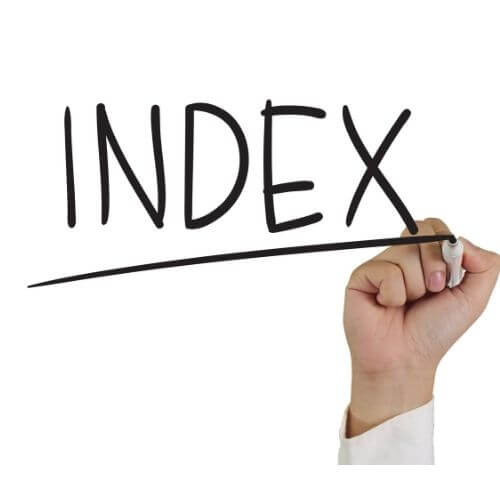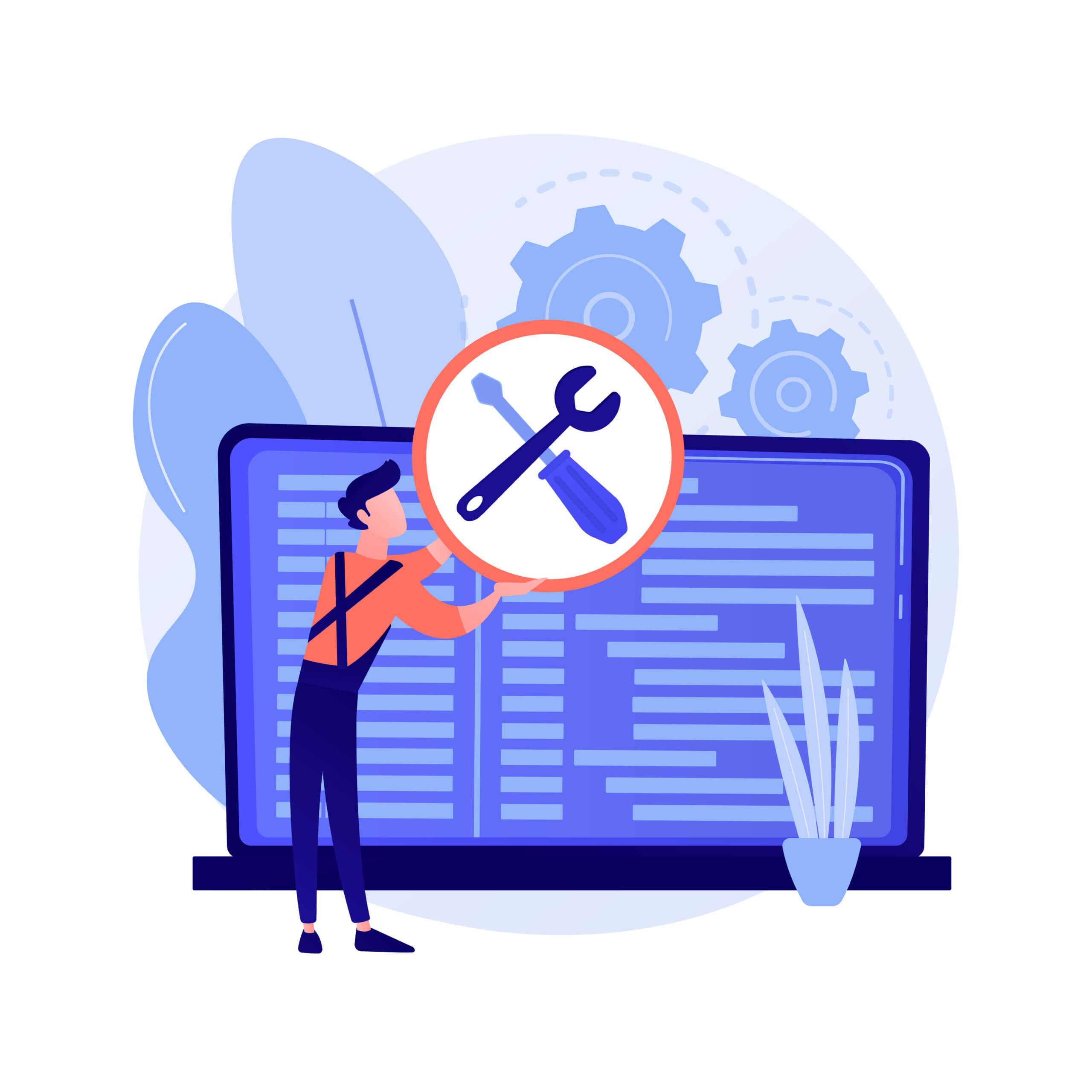Google Search Console is a vital tool for any website owner.
It allows you to see how your website is performing in Google search, and provides insights on how to improve your ranking.
However, one of the most common issues that people experience with Google Search Console is indexing errors.
In this blog post, I will discuss the 11 most common reasons for google indexing issues, and provide tips on how to fix them!

What is indexing your page?
Google Search Console is a free service offered by Google that helps you monitor your website’s performance in Google search results.
One of the features it offers is the ability to see which pages on your site are being indexed by Google, and which ones are not.
If you’re experiencing google indexing issues, it means that there are some pages on your site that Google is not indexing.
This can be a major problem, as it can prevent your website from being found in search results.
There are a number of reasons why this might happen, and I’ll discuss the most common ones below.
Why indexing your website pages is important?
Indexing is important because it allows your website to be found in search results.
If Google is not indexing your pages, then people will not be able to find your website when they search for it.
This can have a major impact on your traffic and lead to a loss of potential customers or readers.
11 Reasons for Google Indexing Issues
Your Site Is Not Mobile-Friendly
One of the most common reasons for google indexing issues is that your site is not mobile-friendly.
In today’s world, more and more people are using their mobile devices to search the internet.
Google has stated that they favor websites that are mobile-friendly in their search results.
If your website is not designed to be viewed on a mobile device, then it is likely that Google will not index your pages.
To fix this, you will need to make sure that your website is designed to be responsive on all devices.
You can use Google’s Mobile-Friendly Test tool to test if your site is mobile-friendly.
How to fix this issue
-get professional help to create a mobile-friendly website
-Use optimized images that are sized for mobile devices
-Use a responsive theme or template
Your Site Takes Too Long To Load
Another common reason for google indexing issues is that your site takes too long to load.
Google has stated that they prefer websites that load quickly.
To know if your site is loading quickly, you can use Google’s PageSpeed Insights tool.
This will give you a score for your website’s speed, and provide insights on how to improve it.
If your website takes a long time to load, then Google is likely to not index your pages.
To fix this, you will need to make sure that your website is optimized for speed.
Some ways to do this include using a caching plugin, optimizing your images, and using a content delivery network.
How to fix this issue
-Install a caching plugin
-Optimize your images
-Use a content delivery network
You Don’t Have A Domain Name
If you don’t have a domain name, then Google will not be able to index your pages.
This is a very silly google indexing issue in my opinion.
A domain name is an important part of your website and is necessary in order for Google to find and index your site.
To fix this, you will need to purchase a domain name and set it up with your website.
Once you have done this, Google will be able to index your pages and your website will appear in search results.
How to fix this issue
-Purchase a domain name
-Set up the domain name with your website
Using complex coding
Some google indexing issues are caused by using complex coding on your website.
If your website is coded in a way that is not standard, then Google may have difficulty indexing your pages.
To fix this, you will need to make sure that your website is coded in a standard format that can be easily read by Google.
You can use a tool like WYSIWYG Editor to help you with this.
How to fix this issue
-Use a standard format for coding your website
-Use a tool like WYSIWYG Editor to help you with this
Your Site Is Not Well Organized
If your website is not well organized, then Google may have difficulty indexing your pages.
Your website should be easy to navigate and have a clear hierarchy.
If it is not, then Google will likely not index all of your pages.
To fix this, you will need to reorganize your website so that it is easy to navigate and has a clear hierarchy.
How to fix this issue
-Reorganize your website
-Use a tool like Site Map Pro to help you with this
Your Site Has Duplicate Content
If your website has duplicate content, then Google may have difficulty indexing your pages.
Duplicate content can be caused by a number of things, such as copying and pasting content from another website or having the same content on multiple pages of your website.
To fix this, you will need to remove any duplicate content from your website.
How to fix this issue
-Remove any duplicate content from your website
-Use a tool like Copyscape to help you with this
-don’t just copy-paste
-create high-quality content
Using Plugins That Block Googlebot from Crawling Your Site
If you are using plugins that block Googlebot from crawling your site, then Google will not be able to index your pages.
A plugin like robots.txt can cause this.
Set up your robots.txt and make sure you don’t have ‘/’ in front of Disallow
Meta Tags Are Set To Noindex, Nofollow
If your meta tags are set to noindex, nofollow, then Google will not be able to index your pages.
Meta tags are HTML tags that are used to give information about a web page.
The noindex, nofollow tag tells search engines not to index the page and not to follow any links on the page.
To fix this, you will need to make sure that your meta tags are set to index, follow.
SEO plugins like Rank Math and Yoast can help you with this.
You have not created a sitemap
If you have not created a sitemap, then Google will not be able to index your pages.
A sitemap is an XML file that contains all of the URLs on your website.
It is used by search engines to find and index your pages.
To fix this, you will need to create a sitemap and submit it to Google.
You can use a tool like XML-Sitemaps to help you with this.
Technical SEO Is Terrible
If your technical SEO is terrible, then Google will not be able to index your pages.
Technical SEO is the process of optimizing your website for search engines.
It includes things like making sure your website is mobile-friendly, using the correct meta tags, and having a sitemap.
To fix this, you will need to improve your technical SEO.
Getting professional help from an SEO agency can help you with this.
Your Site Has Too Many Redirects
If your website has too many redirects, then Google will not be able to index your pages.
Redirects are used to send visitors from one URL to another.
They are often used when a website is changed and the old URL needs to be redirected to the new URL.
However, too many redirects can cause problems for search engines.
To fix this, you will need to remove any unnecessary redirects from your website.
You can use a tool like Redirect Checker to help you with this.
Final Thoughts
There you have it! These are the ten most common reasons for google indexing issues.
If you are having difficulty getting your pages indexed by Google, then make sure to check for these issues.
Fixing them can help improve your chances of getting indexed.
Also, See
How To Optimize Your Website For Search Intent: A Comprehensive Guide
Google Search Console | Best Free SEO Tool
10 Easy SEO Tips For Beginners To Boost Your Organic Traffic




